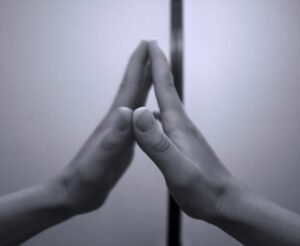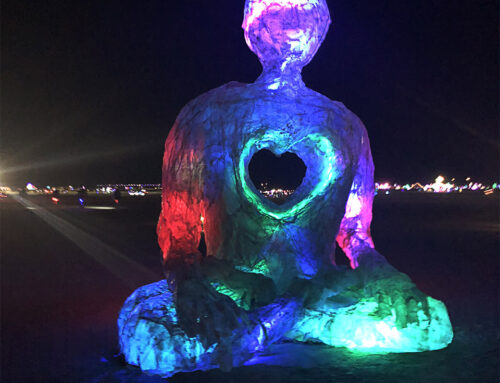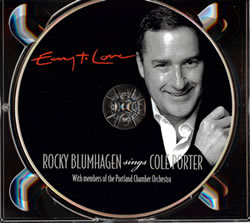A Note to Readers – It might help to know that this post is an expansion of my thoughts from an article posted 9/17/22 on Chip Conley’s wonderful website, The Modern Elder Academy in his Wisdom Well blog. If you have come from that post or have arrived here by intention or accident, “Welcome!” You will find the additional content in bold below.

To develop more compassion for others, I have been inspired by this concept:
“The other person is you.”
Living with this intention helps me judge less and provides a path for dealing with the polarization of our current world.
Democracies create polarization because of the freedom of self-expression, however, social media has taken this concept to an unprecedented level. It is imperative we each be vigilant in how to best protect the fragility of democracy.
“The other person is you.”
The personal exploration of this concept and FULL embodiment of this way of thinking… It really takes some serious soul searching!
Time to Reframe Things
Part of the Covid challenge created more time-exposure to the news. I could see the “fear focus” imbedded in most news feeds and quickly knew I wanted to reframe how I absorbed information.
I met this idea during a Kundalini Yoga teacher training as one of five sutras/threads of the Aquarian Age. Working the thought pattern of “recognizing the other person is you” takes consistent mindfulness. We are not separate from each other; in truth, we are all deeply connected. Anyone I encounter represents aspects of me.
Here are the five sutras/threads of the Aquarian Age.
1. Understand through compassion, otherwise you will misunderstand the times.
2. Recognize the other person is you.
3. When the time is on you, start. And the pressure will be off.
4. There is a way through every block.
5. Vibrate the cosmos, and the cosmos shall clear the path.
When a person’s behavior annoys me, engaging in this form of mindfulness shifts my perspective. It is easier to feel connected to someone who experiences the world as I do. It creates distance when the person causing your irritation behaves quite differently than you. I ask myself, “As I consider this person I find so irritating, how do they represent a part of me?”
 Things May Feel a Bit Bumpy
Things May Feel a Bit Bumpy
You may be thinking, “There is no way I am anything like that other person!”
Take a moment to consider an argumentative colleague… a deeply opinionated friend or family member, a celebrity, or a voice on the world stage. When I think about this person who seems “so unlike me,” can I recognize a small part of me may be argumentative, opinionated, and even annoying. That “other” person allows me to witness these parts of myself, and, if I am open to the moment, these individuals can be my teachers.
Recognizing the other person is me, affords me an opportunity to explore my relationship with these aspects within and ultimately express my best self.
The elephant in the room may be a pugnacious politician or pundit of some political stripe living for soundbites and power at any cost. Their blatant disregard, an imminent threat to a fragile democracy pushed to its limits…
…what if I took a breath and really sat with the idea.
Yes, even here…
“The other person is you.”
It Goes Both Ways
Any quality we observe in another person is present in ourselves.
This bears repeating: ANY quality we observe in another person is present in ourselves. Otherwise, how would we know the behavior?
This works beautifully with positive expressions: kindness, love, forgiveness, selflessness. However, it becomes less comfortable when we recognize negative aspects in others: fear, judgment, rudeness, selfishness, gossip, dishonesty, betrayal. Moreover, even really good people can have really bad behaviors, and these harmful behaviors may be hard for us to accept in others… and harder still to imagine in ourselves.
With Each Day a New Opportunity
So, I begin the work, the work of building on the concept that the other person is me.
This is humbling and challenging to the ego self. The self may feel superior and only wants to acknowledge our good side. We can be blind to our judging self, our micro aggressions, our rudeness, unkindness or self-absorption expressed towards others. We can be blind to our “less than best” behaviors, and at the same time quickly recognize these expressions in others. We often judge other people we encounter before we truly know their circumstances or stories.
Why is that? What part of our humanness unleashes this judging response of self and others?
“The other person is you” is a way to observe the ego. It humbles us to be reminded that we may possess the same qualities, even in small amounts, we find annoying in others.
“The other person is you.”
An Invitation to Self-exploration
As you consider this thought pattern, what is most challenging for you?
How can you remember to engage this thought pattern when you meet a new person or when you encounter someone you find annoying?
Try working this mindset for a few weeks or months and let me know if your sense of compassion increases. I am truly interested. Sat Nam.* ~ Rocky
*Sat Nam in Sanskrit translates “my truth is my identity.”
A special and very heart-felt note of appreciation to Chip Conley of The Modern Elder Academy for inviting me to share an excerpt of this post on his Wisdom Well blog. Spending much of his time at MEA retreat center in Todo Santos, Mexico, Chip is an entrepreneur and advocate for the value of wisdom that comes with age. He is an American hotelier, foundation builder, grant maker, author and speaker, who is also on the board of Burning Man.
Rocky Blumhagen is a Stanford University Rocky Blumhagen, Stanford DCI, (Distinguished Career’s Institute, Fellow/partner Class of 2019) is a yoga and mindful practitioner. To read more about Rocky – Click Here
You can read more of Rocky’s posts on Chip Conley’s Wisdom Well blog. It is full of insights, observations, and wonderful stories of midlife. Want to filter for Rocky? Click through HERE, scroll down the page, and enter “Rocky Blumhagen” into the search bar. Et voila! You’ll find the articles Rocky has guest-authored on the MEA Wisdom Well. Enjoy!






